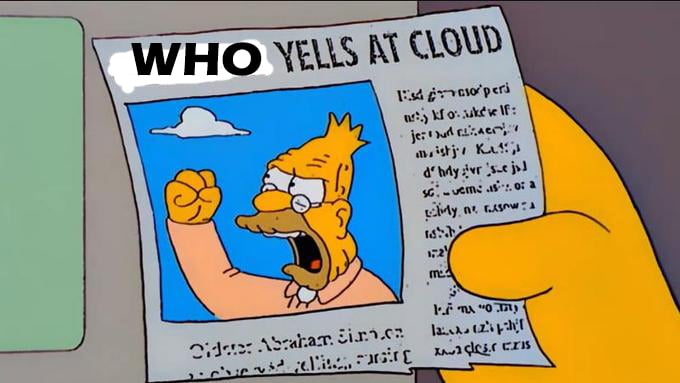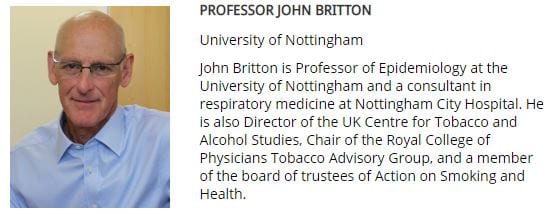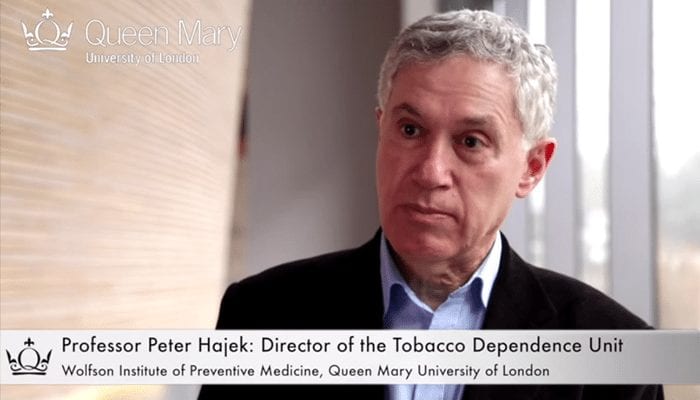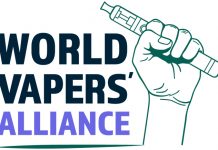UK health experts say not only is a new WHO vape report misleading, it’s factually incorrect on every single level.
And they say this fake message is not only blatantly false but will severely damage the World Health Organizations reputation.
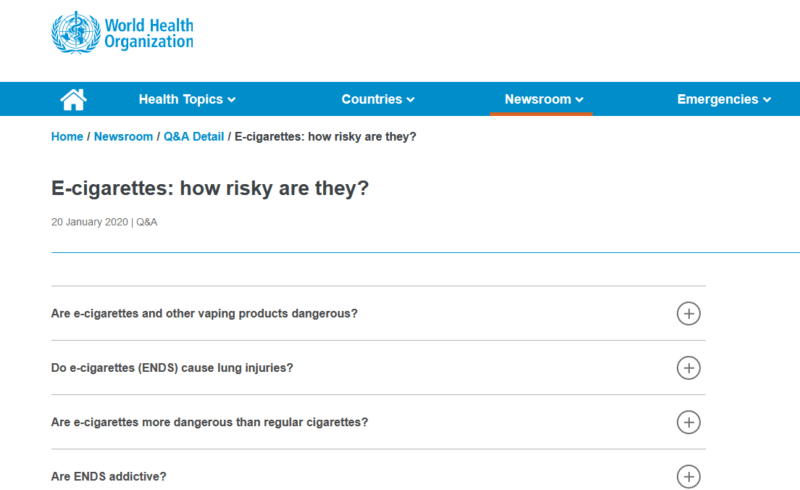
Not only that – the WHO has linked the recent EVALI deaths and illnesses over in the states directly to vaping – ignoring the CDC recent statement proving the cause was contaminated THC cartridges bought from drug dealers.
OK, so what’s this all about then and why has three of the UK’s leading experts in vaping and personal health got so angry with the supposed guardians of world health?
I reported on the WHO’s Q and A style report in this week’s midweek vape news.
I likened the Twitter rant to an angry strange man shouting at passing clouds…and it seems even those really in the know agree.
Under the title: E-cigarettes: how risky are they? – the World Health Organization absolutely slates vaping declaring it ‘highly addictive’ and saying there’s no evidence e-cigarettes help people quit smoking.
The 9 questions asked are:
- Are e-cigarettes and other vaping products dangerous?
- Do e-cigarettes (ENDS) cause lung injuries?
- Are e-cigarettes more dangerous than regular cigarettes?
- Are ENDS addictive?
- Are secondhand ENDS emissions dangerous?
- Should ENDS be banned?
- Should ENDS be regulated?
- Do ENDS help you quit smoking?
- What is WHO doing about ENDS?
The answers they give are nothing short of ignorant and shocking and will no doubt scare many smokers away from vaping and God forbid lead current vapers to return to lit tobacco.
Here’s just a couple of the preposterous, ridiculous and down right fake answers the WHO’s ‘vaping expert’ gives:
- ENDS increase the risk of heart disease and lung disorders. For pregnant women, ENDS pose significant risks as they can damage the growing fetus.
- ENDS also expose non-smokers and bystanders to nicotine and other harmful chemicals.
- There is growing evidence to show that ENDS use could cause lung damage.
- …we know that ENDS pose clear health risks and are by no means safe.
- The aerosols in ENDS typically contain toxic substances, including glycol which is used to make antifreeze. ENDS pose risks to users and non-users.
- Countries can choose to ban ENDS.
- There is not enough evidence to support the use of these products for smoking cessation.
As you’ll see from the UK health experts reactions to these blatant lies – the WHO has lost the plot.
If you think those answers are bad, it’s on the regulation of e-cigarettes where they really go town town!
Regulation should:
- disrupt the promotion and uptake of ENDS products;
- reduce the potential health risks to ENDS users and non-users;
- prohibit false or unproven claims from being made about ENDS; and,
- protect existing tobacco-control efforts.
And of course don’t forget the children:
About 15 000 unique flavours are used in ENDS, including flavours designed to attract young people, like bubble gum and cotton candy.
Governments should restrict ENDS advertising, promotion and sponsorship so young people, other vulnerable groups and non-smokers are not targeted.
The use of ENDS in indoor public and work places should be banned, given the health risks posed to non-users.
Taxing ENDS in a similar way to tobacco products offers a win–win for governments by protecting citizens through higher prices that deter consumption.
*sighs*
WHO Vape Report Misleading – UK Health Experts Hit Back
It’s really quite rare those in the medical profession hit out at the World Health Organization – so kudos to these folks who don’t hold back!
Louise Ross is the vice chair of the New Nicotine Alliance.
Believe it or not, this UK based advocacy charity is black-listed by the World Health Organization and placed in the same list as arms dealers…
Yes really lol…
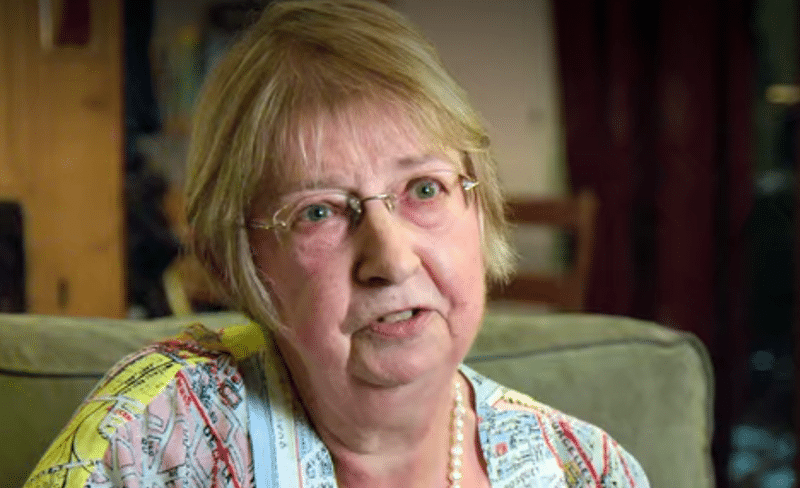
Louise said:
Members of the New Nicotine Alliance are disappointed and angry that an organisation as influential as the World Health Organisation is publishing assertions that undermine the determination of smokers to switch to a less harmful product.
It is no wonder that the general public and healthcare professionals are confused and are losing confidence in the benefits of switching from using combustible tobacco to a product free from carbon monoxide and tar.
The report will have the net effect of encouraging people to go back to or continue to smoke, with more lives lost to smoking-related illness.
Absolutely.
Dr Nick Hopkinson, Reader in Respiratory Medicine at the National Heart and Lung Institute Imperial College London, said:
We know that e-cigarettes are substantially safer than smoking, because the toxic substances present in cigarette smoke are either completely absent, or present at much lower levels.
Evidence from randomised controlled trials shows clearly that e-cigarettes can help smokers to quit.
Smokers who switch completely to vaping will gain a significant health benefit. Long term use of e-cigarettes is not completely harmless, so people who vape should aim to quit that too, though not at the expense of going back to smoking.
Products on sale in the UK are regulated by the MHRA and have to meet the requirements of the EU tobacco products directive which limits their contents, strength and advertising.
Prof John Britton, Director of the UK Centre for Tobacco & Alcohol Studies and Consultant in Respiratory Medicine, University of Nottingham, said:
This WHO briefing is misleading on several counts.
It implies that vaping nicotine is the cause of the 2019 US outbreak of severe lung disease, when it was in fact vaping cannabis products.
It says that there is no strong evidence that vaping is an effective means of quitting smoking, when in fact there is clinical trial evidence of the highest standard demonstrating that vaping is more effective than the nicotine replacement therapies that the WHO endorse.
It responds to the question of whether e-cigarettes are more dangerous than tobacco cigarettes by suggesting that we don’t know, when in fact they are clearly less harmful.
In these ways alone, the WHO misrepresents the available scientific evidence.
Final word to Prof Peter Hajek, Director of the Tobacco Dependence Research Unit at Queen Mary University of London:
The WHO has a history of anti-vaping activism that is damaging their reputation.
This document is particularly malign.
Practically all the factual statements in it are wrong.
There is no evidence that vaping is ‘highly addictive’ – less than 1% of non-smokers become regular vapers.
Vaping does not lead young people to smoking – smoking among young people is at all time low.
There is no evidence that vaping increases risk of heart disease or that could have any effect at all on bystanders’ health.
The US outbreak of lung injuries is due to contaminants in illegal marijuana cartridges and has nothing to do with nicotine vaping.
There is clear evidence that e-cigarettes help smokers quit.
The authors of this document should take responsibility for using blatant misinformation that is likely to to prevent smokers from switching to a much less risky alternative.
Final Thoughts
If this total BS wasn’t so serious it would be laughable.
I have wondered why the WHO is so anti e-cigarettes for an absolute age and haven’t really come up with a clear reason.
Sure I can say they rely on the so called fight against Big Tobacco to fill their coffers – all those high class junkets around the world need paying for.
There’s definitely a reason and as with most things its got to be down to the money.
The World Health Organization is funded by member governments based on each country’s net worth and according to Investopedia:
Funding sources include membership dues, the sale of goods and services, private sector for-profit companies, philanthropic foundations, grants from local, state and federal agencies, and private donations.

One of those philanthropic foundations is, would you believe, billionaire media mogul Michael Bloomberg.
Yeah the guy running for US President who I wrote about in the piece: Bloomberg Flavour Ban Plan – A Conflict Of Interest?
He’s the guy calling for a total flavour ban in the USA, whilst donating $160 million [at the last count] to a whole host of anti-vaping groups in the states.
And as you’ll know from the article above, he’s also one of the investors in a new Big Pharma backed ‘vape device’.
As for the WHO – Bloomberg recently sponsored the World Health Organization’s 2019 Global Tobacco Report.
That little gem concluded vaping was: undoubtedly harmful – not helping to tackle cancer and a gateway for young people to smoking!
Seems the WHO dare not embrace vaping if they want to keep Bloomberg’s money pouring in – hence the ludicrous attacks on what is a life saving product…
I’ve called Bloomberg the Éminence grise in the world of vaping – he really is the little man behind the scenes pulling the strings…
Me a conspiracy theorist?
Naw…
